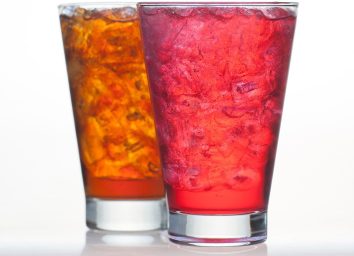Why You Should Be Worried About The Chemicals In Your Water Bottle
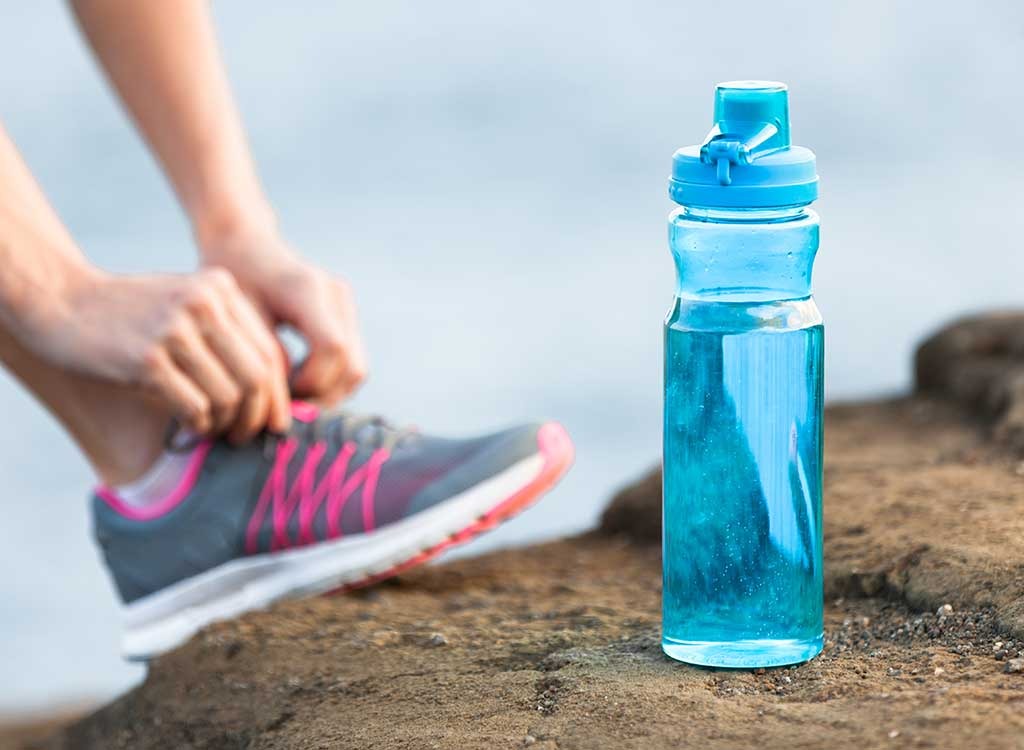
Put the water filter down for a sec and listen up. While putting in the extra effort to purify your water is great, it's time you paid attention to the bigger culprit here — your water bottle. Whether you drink bottled water or bought a reusable one to save money, save the environment, or save your insides, you may actually be doing yourself more harm than good. Read on to discover which bottles to avoid, and which to buy—and speaking of staying hydrated, healthfully, don't miss this essential Drink This, Not That! list of the 30 Unhealthiest Drinks on the Planet.
The Problem With Plastic

BPA: if you've heard of it, you know that these three little letters can do a lot of damage. When this industrial chemical gets into the body, it mimics estrogen. According to a study in Clinical and Experimental Reproductive Medicine, this can lead to a variety of hormonal changes, including early puberty in females, sperm reduction, obesity, and increased rates of reproductive cancers.
Scary stuff, but you know what's even scarier? 90 percent of us have it in our bloodstream according to a study by the US Center for Disease Control, and it's partly due to plastic water bottles. Plastics that are made with BPA allow the chemical to leach into our water and into us, especially when they're exposed to heat or light.
Because of this, many companies have come out with BPA-free plastic bottles, but they're not any better. The University of Texas found that there are hormone-disrupting chemicals in almost all plastics, even BPA-free ones. And according to a recent study in Nature Communications, BHFP, the chemical usually used to replace BPA, has an effect on estrogen as well. Altering hormones at any level can be dangerous, so even though BHFP blocks estrogen instead of ramping it up like BPA does, it's in your best interest to stay away.
Avoid Aluminum

Turning to aluminum bottles instead of plastic ones may seem like a better idea, but think again. Although there has been a lot of controversy surrounding the link between Alzheimer's and aluminum, some studies have in fact shown that this metal plays a role in the disease. Exactly how much of a role, we can't be sure yet, but a Keele University study found that there is significantly more aluminum in the brain tissue of Alzheimer's patients than in people of the same age without memory loss. It'd be impossible to avoid this metal completely, but try limiting your exposure to it whenever possible, just in case. Better safe than sorry!
If you decide to drink from aluminum anyway, at the very least make sure the bottle doesn't have a plastic liner. This could be sneakily adding estrogen-activating chemicals to the water you thought was BPA-free, putting you right back where you started.
Your Best Bet
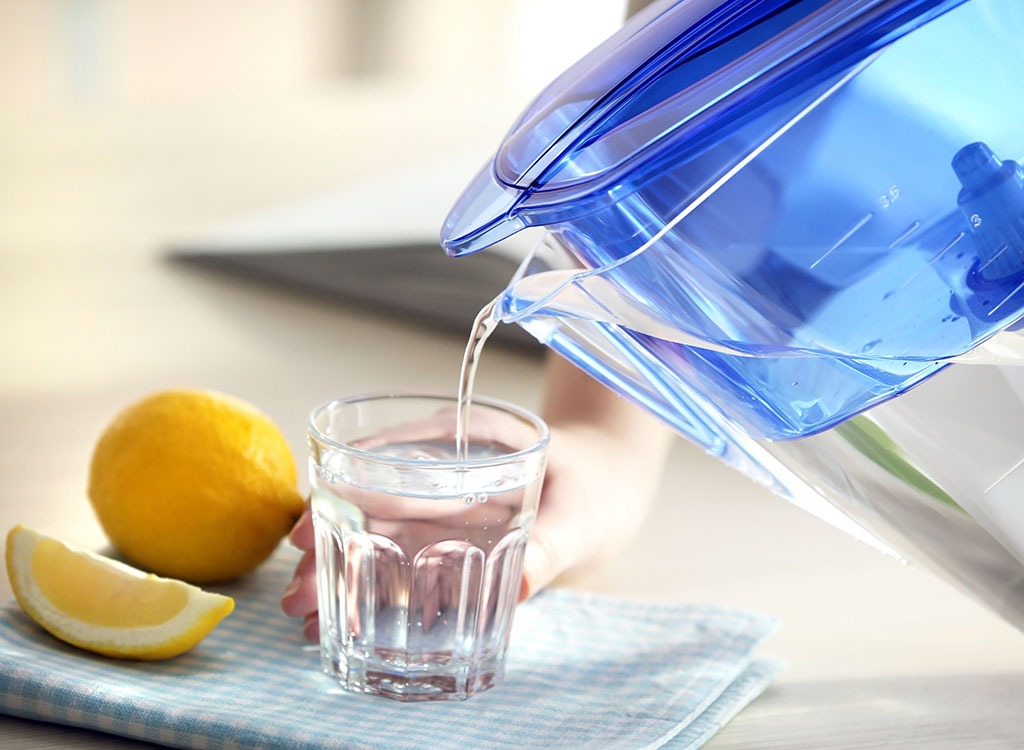
Stainless steel bottles can be lined with plastic as well and, as a result, contain BPA. But as long as you look out for that when you're shopping, this material is the most practical choice for a worry-free drink. Glass bottles aren't risky either — as long as you aren't dropping them on the floor — so use them when you can. And once you've purchased the right bottle, check out our list of 50 Best Detox Waters For Fat Burning And Weight Loss for something to fill it with.
Eat This!-Approved Water Bottles:

There are plenty of stylish glass and stainless steel water bottles to choose from that don't contain these harmful chemicals. Here are the top three picks from Eat This, Not That!
Bkr
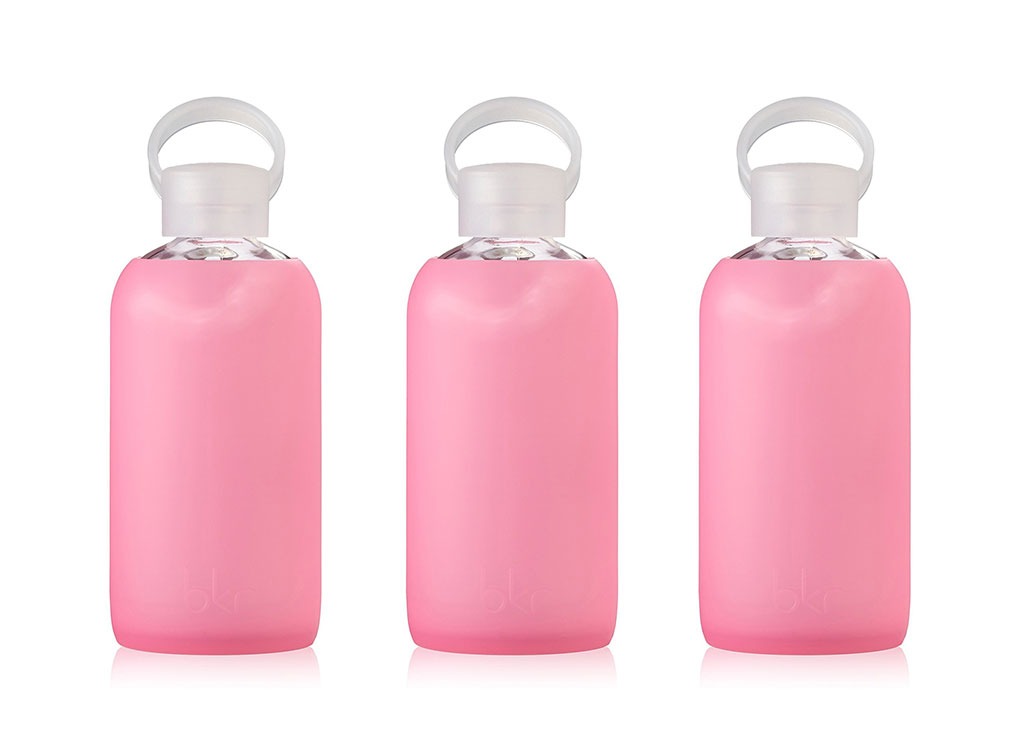
bkr 16-Ounce Glass Water With BPA-free Silicone Sleeve
$35 at Amazon.com
Hydro Flask
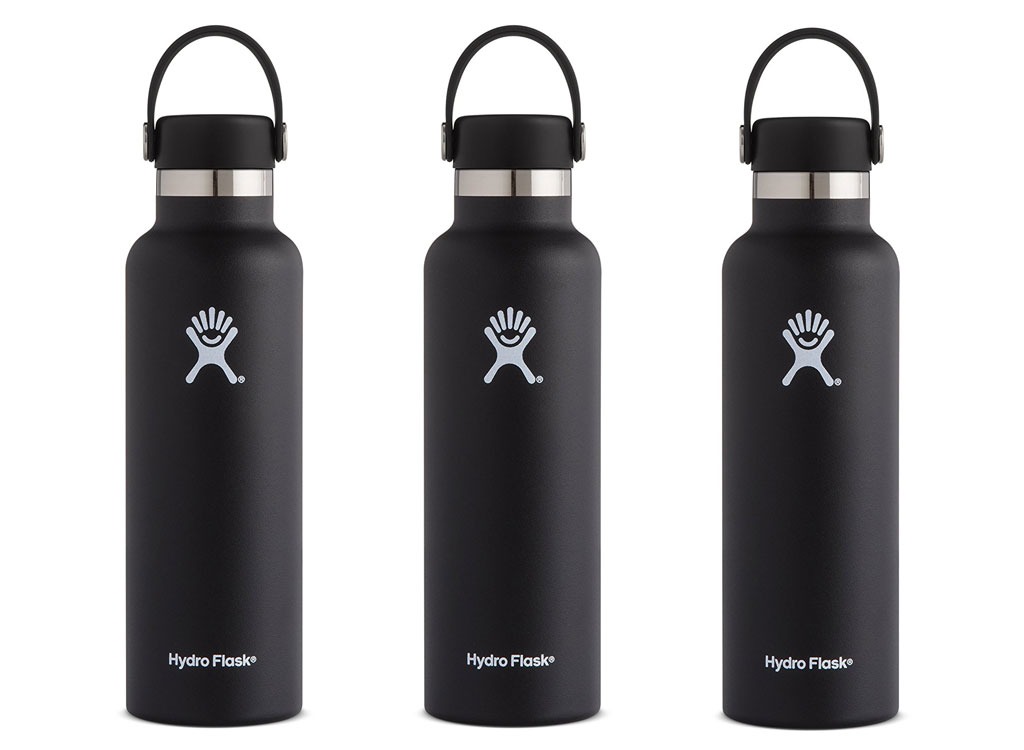
Hydro Flask Stainless Steel Sports Water Bottle With BPA-Free Flex Cap
Starting at $25 at Amazon.com
Soma
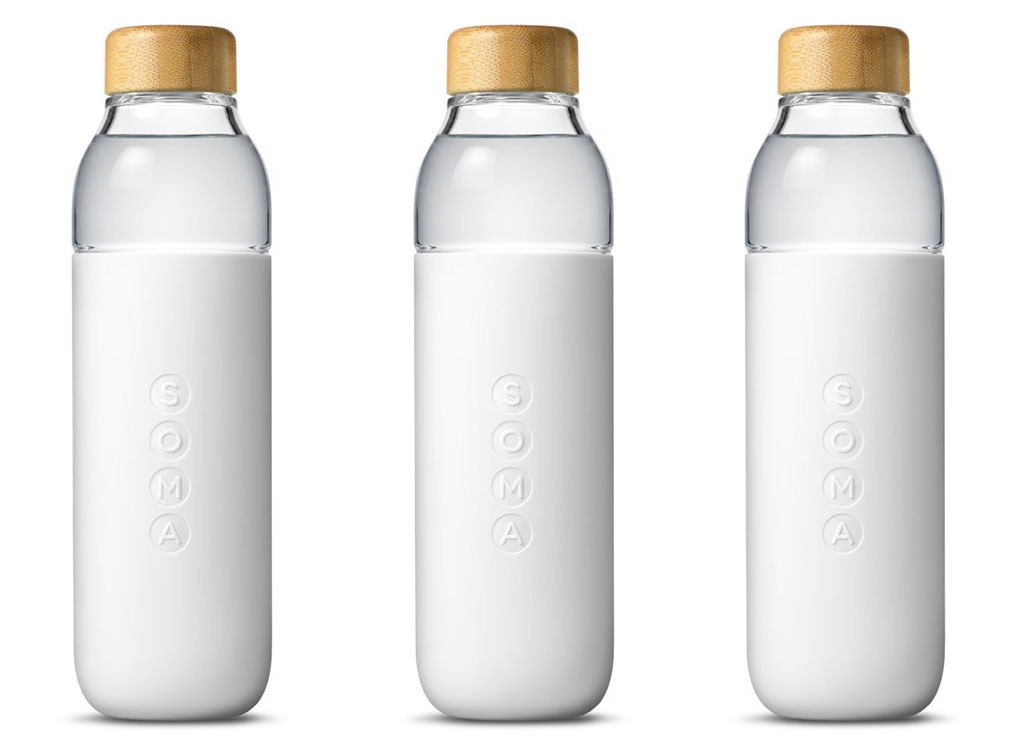
Soma 17-Ounce BPA-Free Glass Water Bottle
$30 at Amazon.com
